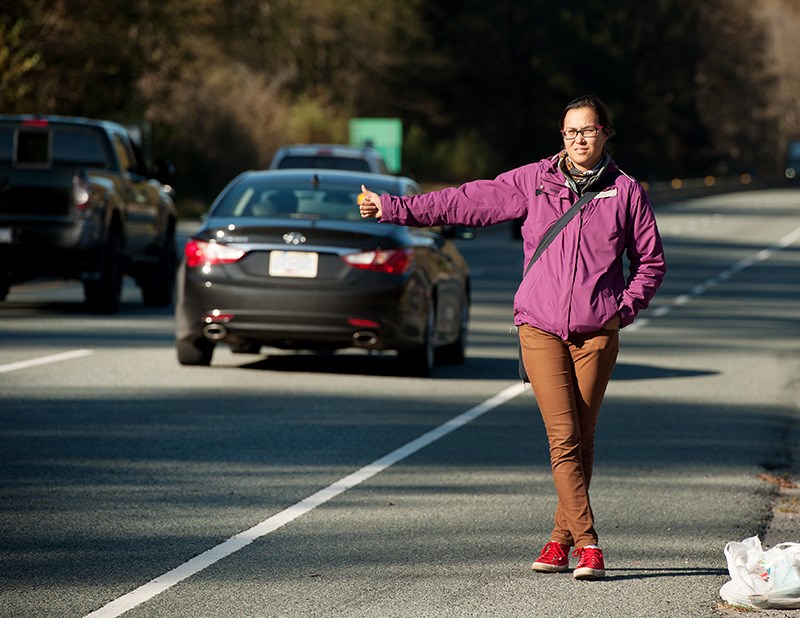Hitch, thumb, bum a ride: all synonyms for hitchhiking, which is illegal on highways in B.C. but nevertheless relatively common in the corridor.
Researchers conducting a unique study of hitchhiking and its link to the Highway of Tears were in Squamish last week interviewing local people.
Jacqueline Holler, an associate women’s studies professor at the University of Northern B.C., has a team investigating reasons for hitchhiking.
“What we are really trying to understand is what is this world of hitchhiking, because no scholars have studied it,” she said. “It is completely understudied.”
The origins of the research relate to recommendations that came out of the 2006 Highway of Tears Symposium Recommendation Report, Holler explained.
The Highway of Tears refers to a series of unsolved murders and disappearances of young women along Highway 16 between Prince George and Prince Rupert from about 1969 to 2011.
The report recommended limiting hitchhiking, but also to try and understand why people do it, Holler said.
Starting in 2012, Holler worked with the RCMP to develop a profile of who is hitching and why in Northern B.C.
At the beginning of this year she received funding to do a large-scale study across the province.
“If we really want to understand the differences that exist in Northern B.C. and the differences that might exist between men and women, then what we need to do is talk to a whole bunch of different people,” she said.
Holler said in addition to people’s hitchhiking habits, the researchers also ask people about their transportation needs and whether or not they would still hitchhike if other transportation options were available.
Squamish has a unique hitchhiking culture, she said.
“It is a very different situation from, say, Northern B.C.,” she said. “There’s a distinct hitchhiking culture in the corridor that relates more to outdoor pursuits… going climbing, hitchhiking to trailheads and also going into and out of Vancouver.”
She said some people she spoke to mentioned lack of access to buses from Vancouver and Lions Bay later in the evening, so they hitch a ride.
Although the researchers have left Squamish, it is not too late to take part in the study; there’s an online survey at www.fluidsurveys.com/s/hitchhiking.
People with any history of hitchhiking are encouraged to participate, Holler said.
“We are getting amazing results, and I think we will be able to make recommendations to government, and I think we will be able to understand a lot more about the whole world of hitchhiking.”
Next, the researchers will travel to other locations. One team will be interviewing on Highway 97 north, and one team will be interviewing in Victoria and around Vancouver Island.
The researchers are collecting data until the end of December. The results will be released sometime in the new year.



